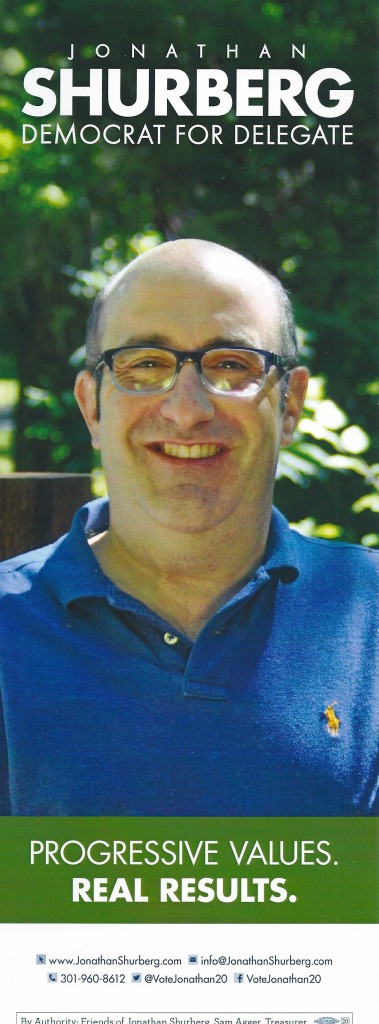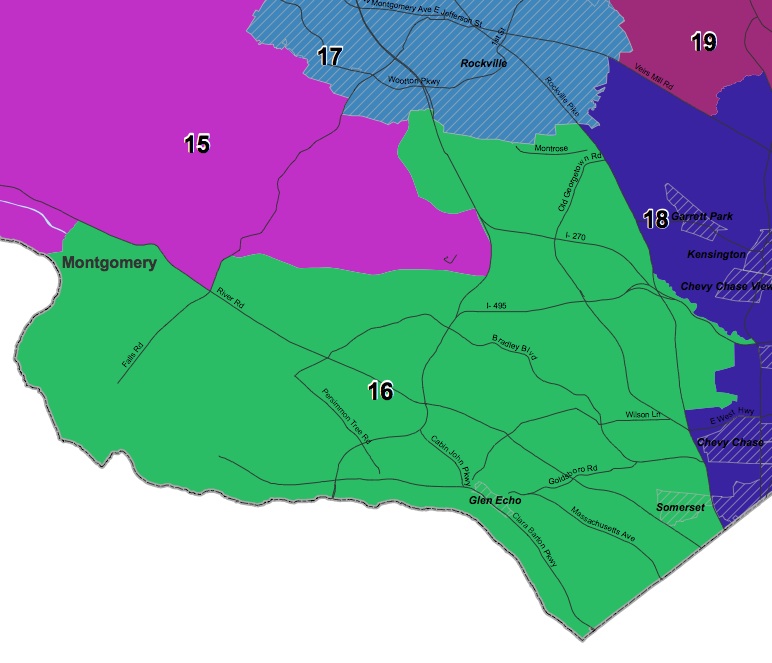Political and business leaders often refer to Montgomery County as the “economic engine” of Maryland. Interesting words, “economic engine.”
In the 1950s and 1960s, Montgomery County was transforming from farmland to suburbia. I doubt that any of my neighbors in those years imagined that the county would ever be called an economic engine.
In 1950, the county population was 164,000. By 1970, population more than tripled, to 525,000. People were moving to Montgomery County by the thousands because it was a good, safe place to live, with excellent schools. And they could have a yard for the kids and the dog.
The fast pace of growth continued through the 1970s, 1980s and 1990s–not only residential development, but construction of shopping malls and industrial parks. The county became a place to work, as well as a place to live. Looking back on those decades, Montgomery County was an engine of constant real estate development.
By the turn of the century, Bethesda was on its way to becoming an “edge city,” with tall office and residential buildings. Cutting-edge industry emerged along the I-270 corridor in Rockville and Gaithersburg, and residential development extended to Germantown.
2014 And The Future
Now, in the year 2014, with a population of one million, and more jobs than any other jurisdiction in Maryland, we’re not sure if Montgomery County is destined to be a city, a suburb, or something in between. Jobs are a critical concern, but housing is also essential, especially a range of affordable housing for everyone from retail and service workers, to teachers and police officers, to the very affluent.
Taking stock as we approach the 2014 election, and looking to the future, residents might ask the following question:
Do Montgomery County voters want to live inside a constantly growing economic engine?
My own instinctive answer is, “No, Montgomery residents want to preserve, as much as possible, a more bucolic, suburban sense of place.”
At the same time, I wonder, “Maybe we’re too far down the road to urbanization to turn back. We have more jobs than any other place in Maryland. Our population is diverse and multilingual. Wouldn’t it be cool to become a 21st century, cosmopolitan city.”
Imagine a prosperous urban center, combining the best of Montreal and Silicon Valley.
Montgomery County residents and leaders haven’t had much time to catch their breath and fully consider the choices. Growing from 165,000 to one million in six decades, it’s been a constant challenge just for basic infrastructure to keep up with population and job growth.
Past economic growth has been truly impressive, but we have no reason to project that kind of growth into the future. We can’t predict whether future development will overwhelm us, or go elsewhere.
For one thing, the federal government remains the most important economic influence in the Washington, D.C., region. If the federal government did not exist, Montgomery County would still be farmland.
The federal government remains the largest single employer in Montgomery County. But consider that federal job growth has probably peaked. Many workers in both public and private sectors will be replaced by computers and robots. We may well lose jobs faster than we can create them.
No matter what politicians say at election time, it’s not within the power of any one local leader, or even all local leaders acting together, to create private sector jobs.
If economic and job growth is Plan A, we should also have a Plan B. Plan A only works if the American economy returns to the status quo ante 2006. If not, if there’s been an economic paradigm shift, we’ll need a Plan B. What that plan would involve is beyond the scope of this article.
21st Century Infrastructure
Based on geography and infrastructure in the Maryland-D.C.-Virginia region, it looks to me like the economic engine of the future might be the I-95 corridor.
It’s shaped like a barbell, anchored in the south by the federal government and major universities in Washington. In the north it’s anchored by major universities and medical centers in Baltimore, and the Port of Baltimore. In between, along the highway and railroad infrastructure linking the two cities, there’s the University of Maryland at College Park, the National Security Agency at Fort Meade, and importantly, BWI Airport.
Now look west, to Montgomery County. The county is not far from the I-95 corridor, but it’s not exactly at the center of the action. You might almost say — in fact, I will say it — Montgomery County looks perfectly located to be a major bedroom community for the Baltimore-Washington corridor, particularly at the southern end.
Historically, major cities developed around transportation by water, railroad or airport. In the 21st century, can Montgomery County expect to be a major economic player without an airport? The county also does not have a professional sports team, or a major research university, a medical school, law school, or even a four-year college.
We’ve had our hands full in Montgomery County building a basic suburban infrastructure of schools, highways, and mass transit.
If we aspire to be a cosmopolitan center with population density and economic growth, we need to commit ourselves to building other kinds of infrastructure, such as a major airport and a university.
The growing Baltimore-Washington region is going to need another modern airport eventually, I’m thinking. Dulles is far to the southwest and BWI is to the north. Reagan National is reduced to boutique-VIP airport status for obvious security reasons.
But finding a site for a major airport in Montgomery County is a problem that boggles the mind. It would be an epic battle. Possibly Frederick County would like an airport to support the economic growth of both counties. Or possibly not. All in all, an airport to serve the western part of the metro area seems like an unlikely dream.
Besides an airport, it’s hard to imagine a city of one million, a center of innovation and scientific development, without a university. Lack of affordable, local higher education is a problem for both middle-class families and business development.
Montgomery College and the Universities at Shady Grove fill part of the need, but they’re less than a shadow of the excellent higher education available in Baltimore and Washington.
So what does Montgomery County have to attract businesses? A great public school system, relatively high costs of land, and inconvenient airport access. Seems to me the I-95 corridor might be a better choice for many companies.
Housing, Business and Jobs
It doesn’t make sense for jurisdictions within the region to compete for all types of development. No one can predict the future, but we’ll probably have more than enough growth to go around over the next 50 years. Might Montgomery add another half-million people? Another million? It’s impossible to say.
Since the pressures for growth are mostly beyond our control, wouldn’t it be best to allow the region to grow organically, rather than trying to rush growth, or block it?
Maybe the I-95 corridor has an advantage when it comes to development of business and commerce. Maybe Montgomery County has an advantage as an excellent place to live.
When good companies want to locate in Montgomery County, we should welcome them. But it doesn’t make sense to encourage growth on steroids, or to get into a bidding war with other counties.
Jobs are a critical need, but so is housing. The exact location of jobs is not critical, as long as they’re within commuting distance. Montgomery residents moved here because they want a good place to live and excellent schools. They knew from the start that they’d be commuting. They don’t necessarily need their jobs to be in the county.
Fortunately, the Intercounty Connector and the Purple Line will connect Montgomery County with the I-95 corridor in both north and south. The improved transportation network will make it easier for people who live in Montgomery to get to jobs in Prince George’s, Anne Arundel, and Baltimore, and vice versa. No need to treat our neighbors as rivals. A cooperative approach would enable the region to grow organically, with a balance of businesses for people to work in, and houses for people to live in. It’s a win-win.
Election year 2014 is an opportunity for decision-making. We only get this opportunity once every four years. But I’m afraid most residents are disengaged from politics.
Assuming that continued growth is virtually inevitable, the question is: What kind of growth and development do the people who live and vote in Montgomery County prefer, and how much? And what do the candidates think?
Is Montgomery County home sweet home, or an economic engine. Perhaps it can be both. What do you think.
Contact: BJohnHayden@icloud.com








